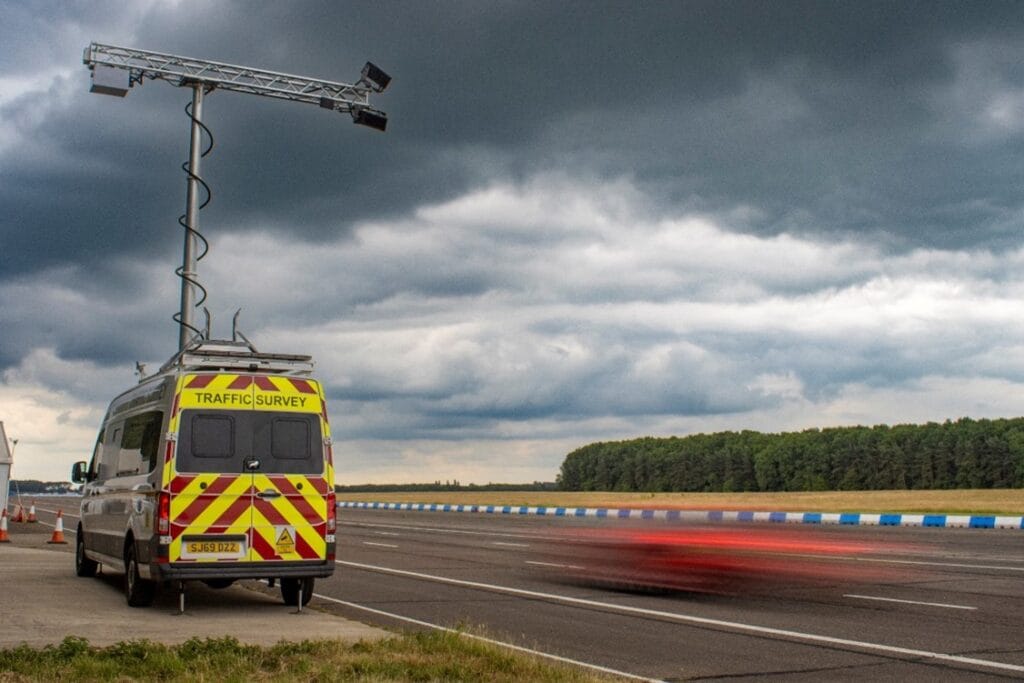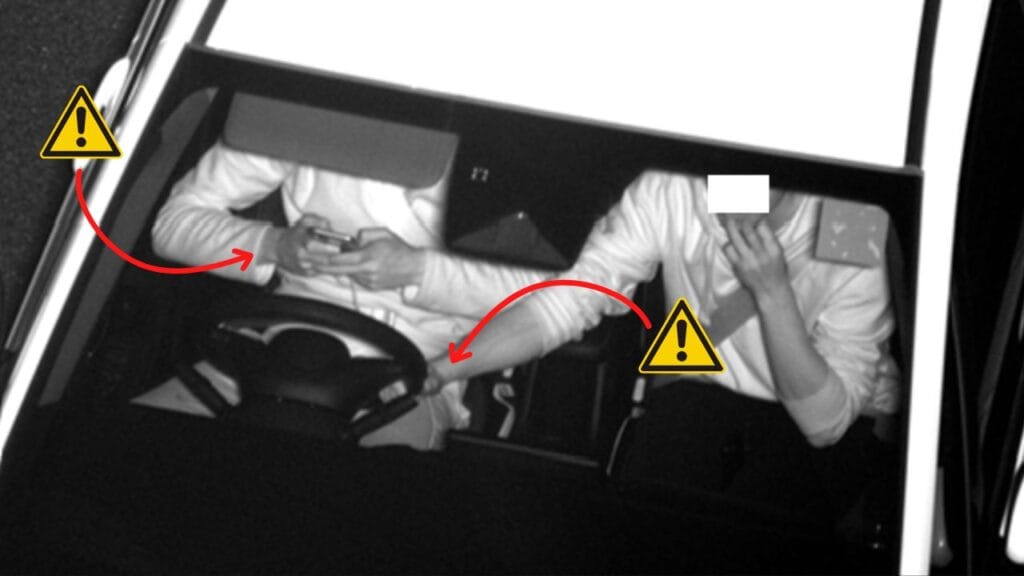A ground-breaking camera system which uses AI to catch drivers using mobile phones behind the wheel is being trialled in Devon and Cornwall.
The technology, which can also detect whether drivers are wearing a seatbelt, is being rolled out on select routes across the two counties over the next two months.
The trial is being funded by the Vision Zero South West road safety partnership and overseen by Devon and Cornwall Police in an effort to deter drivers from distractions which can result in serious and fatal collisions.
The Acusensus system is housed in a vehicle equipped with multiple cameras which record footage of passing motorists.
Images captured by the cameras are processed using artificial intelligence (AI) to determine if motorists were using a handheld mobile phone or if drivers and passengers were without a seat belt. It can also determine the speed a vehicle was travelling at the time.
Any images in which a potential offence is detected are then reviewed by a human. If an offence has been correctly identified, the driver will either be sent a warning letter or a notice of intended prosecution, depending on the severity.
Supt Adrian Leisk, Strategic Roads Policing lead for Devon & Cornwall Police, hopes the technology will help send a clear message to the small minority of motorists who continue to flout the law.
Supt Leisk said: “Using a mobile phone while driving is both dangerous and illegal. It puts the lives of the driver, passengers and other road users at risk – and that is unacceptable.
“Despite repeated messaging and even a change in the law which makes any contact with a mobile phone while driving illegal, sadly there are still some people who continue to ignore the rules.
“We are employing this new technology to send a clear message to anyone who continues to use their phone behind the wheel – you will get caught.
“Whether it’s by the Acusensus cameras, a passing officer or on video footage submitted through Op Snap, the result will be the same and you will end up with a hefty fine and six penalty points – which could be enough to cost some drivers their license.
“It’s just not worth it. Before you start your journey, put your phone away in the glovebox or somewhere you cannot reach it so the temptation is not there. If it’s an emergency, make sure you pull in and stop the car before making that call.”

In 2020 a national road safety survey was commissioned by Alison Hernandez, Police and Crime Commissioner for Devon, Cornwall and the Isles of Scilly and then-APCC lead for road safety.
Of the 66,000 people who responded, 55% said they witnessed road traffic offences such as using a mobile phone or not wearing a seatbelt on a daily basis, with 21% saying they witnessed them on a weekly basis.
Furthermore, 81% of respondents agreed that road traffic offences required more enforcement.
Commissioner Hernandez, who is also chairman of the Vision Zero South West road safety partnership, said: “Road safety is one of four priorities in my Police and Crime Plan. There are too many people being killed or seriously injured on Devon and Cornwall’s roads.
“We know distracted driving is a common cause of collisions, which is exactly why it is illegal to use a mobile phone while driving.
“By embracing new technology such as the Acusensus system, we have the opportunity to improve compliance with these laws and consequently make our roads safer for everyone.”
Dr Jamie Uff, Technical Director with AECOM, said: “Despite the often-reported dangers of distracted driving and failing to wear seat belts, the numbers of people killed or seriously injured as a result of these behaviours remain high.
“The technology AECOM is deploying makes detection straightforward and is providing valuable insight to the police and policy makers on the current level of road user behaviour. We are really keen to use this equipment to raise awareness and help improve road safety for all.”
What is the law on using a mobile phone or other device while driving?
It’s illegal to hold and use a phone, sat nav, tablet, or any device that can send or receive data, while driving or riding a motorcycle.
This means you must not use a device in your hand for any reason, whether online or offline.
For example, you must not text, make calls, take photos or videos, or browse the web.
The law still applies to you if you’re:
- stopped at traffic lights
- queuing in traffic
- supervising a learner driver
- driving a car that turns off the engine when you stop moving
- holding and using a device that’s offline or in flight mode
Exceptions
You can use a device held in your hand if:
- you need to call 999 or 112 in an emergency and it’s unsafe or impractical to stop
- you’re safely parked
- you’re making a contactless payment in a vehicle that is not moving, for example at a drive-through restaurant
- you’re using the device to park your vehicle remotely
Using devices hands-free
You can use devices with hands-free access, as long as you do not hold them at any time during usage. Hands-free access means using, for example:
- a Bluetooth headset
- voice command
- a dashboard holder or mat
- a windscreen mount
- a built-in sat nav
The device must not block your view of the road and traffic ahead.
Staying in full control of your vehicle
You must stay in full control of your vehicle at all times. The police can stop you if they think you’re not in control because you’re distracted and you can be prosecuted.
Penalties
You can get 6 penalty points and a £200 fine if you hold and use a phone, sat nav, tablet, or any device that can send and receive data while driving or riding a motorcycle.
You’ll also lose your licence if you passed your driving test in the last 2 years.
You can get 3 penalty points if you do not have a full view of the road and traffic ahead or proper control of the vehicle.
You can also be taken to court where you can:
- be banned from driving or riding
- get a maximum fine of £1,000 (£2,500 if you’re driving a lorry or bus)

